

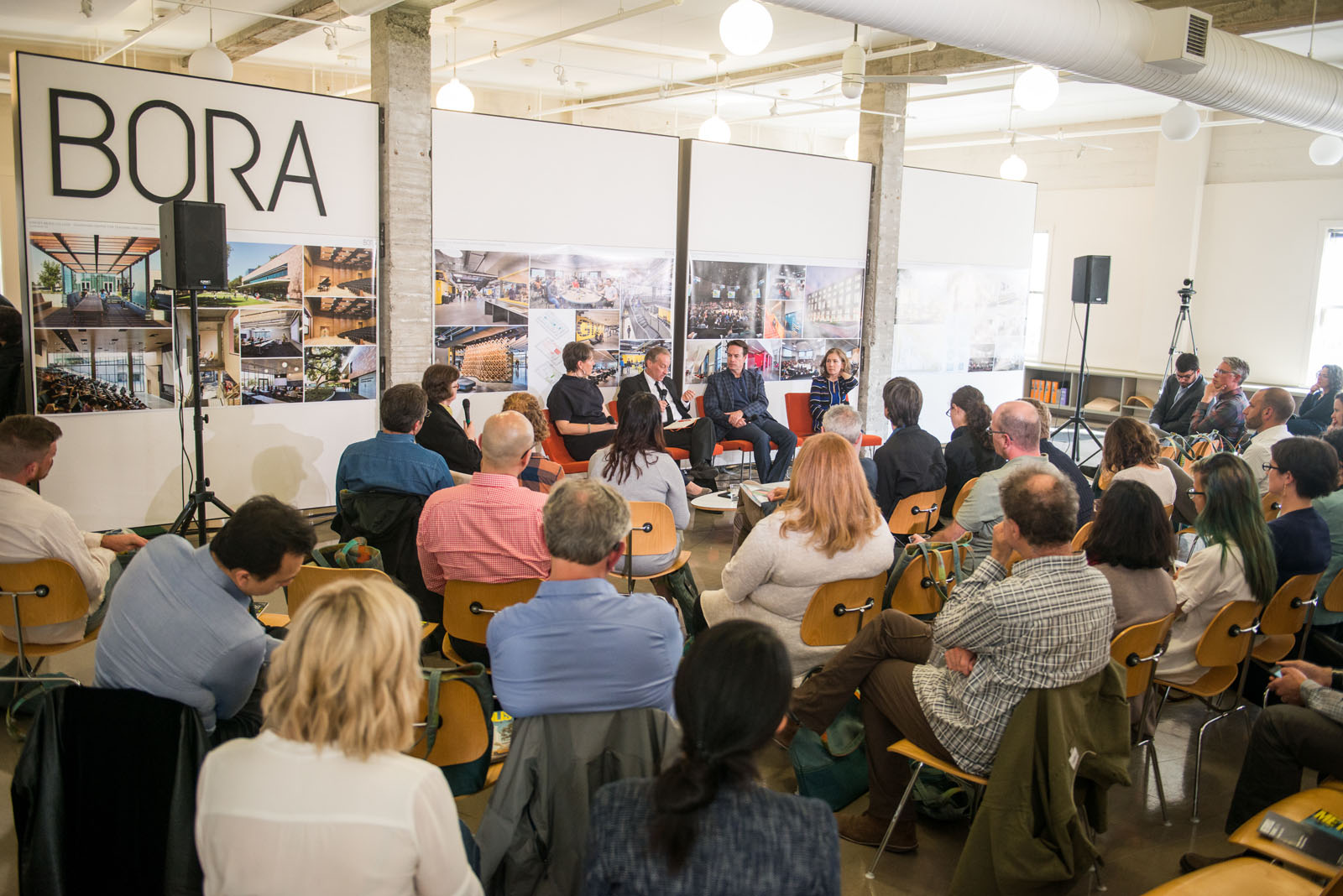
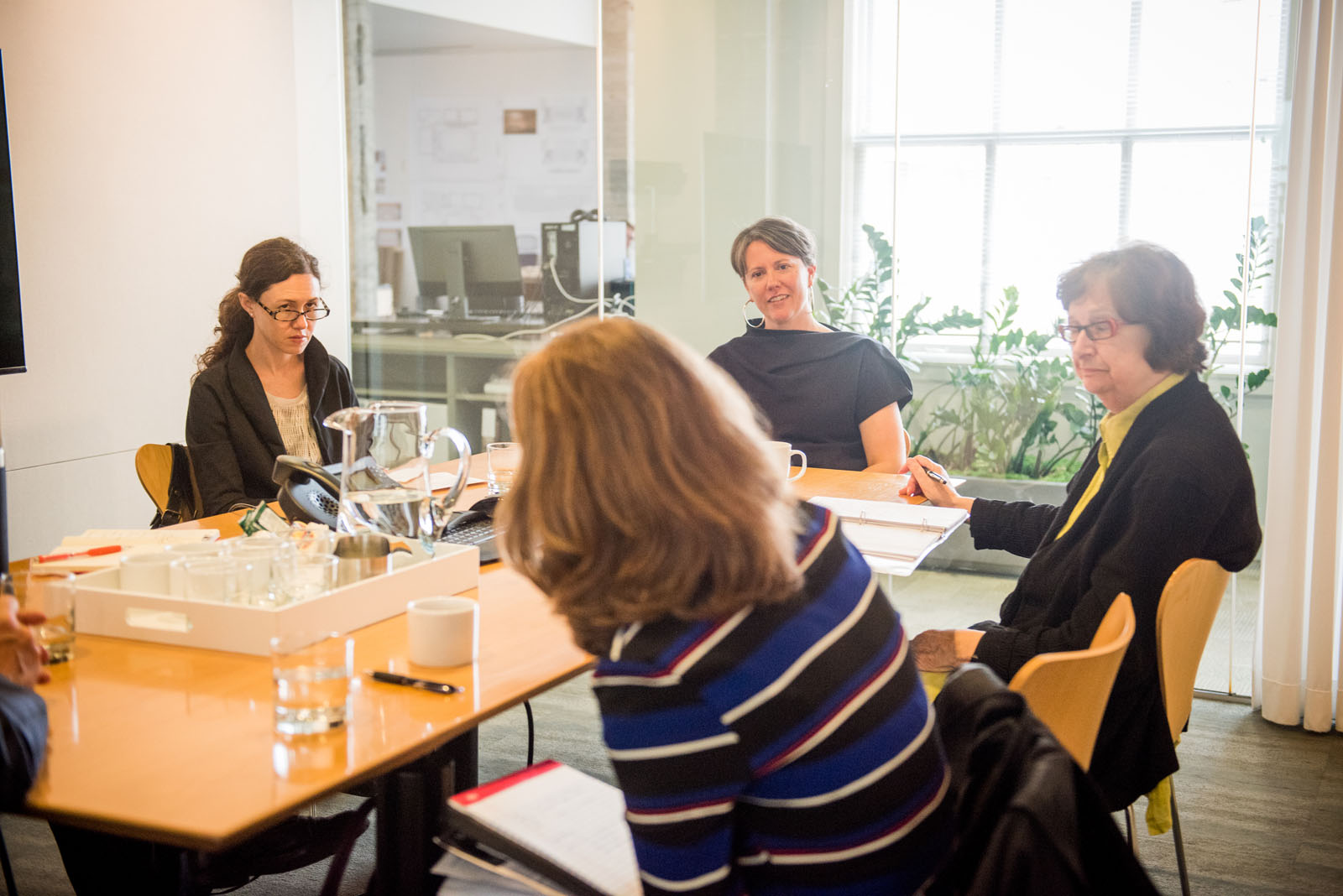
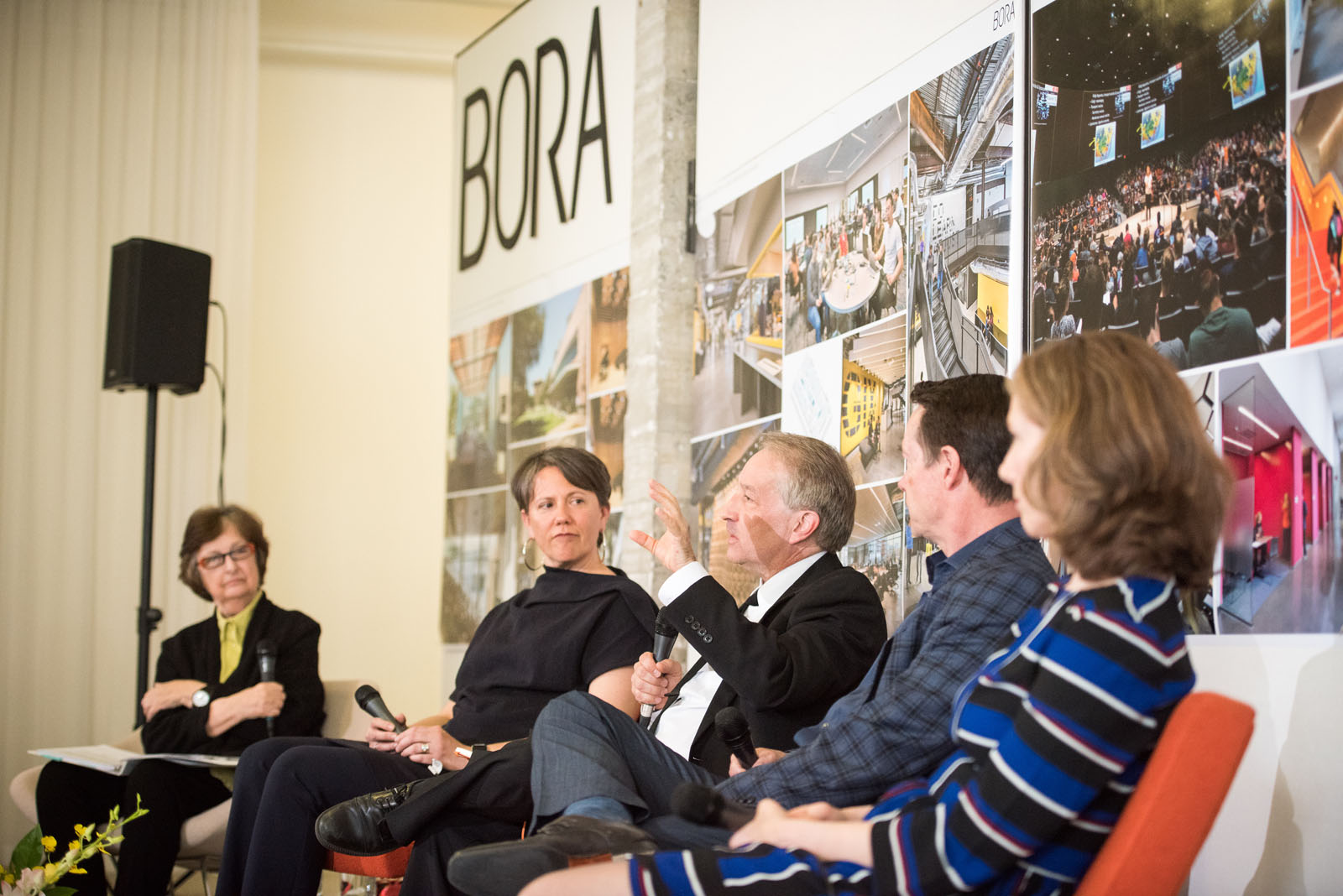
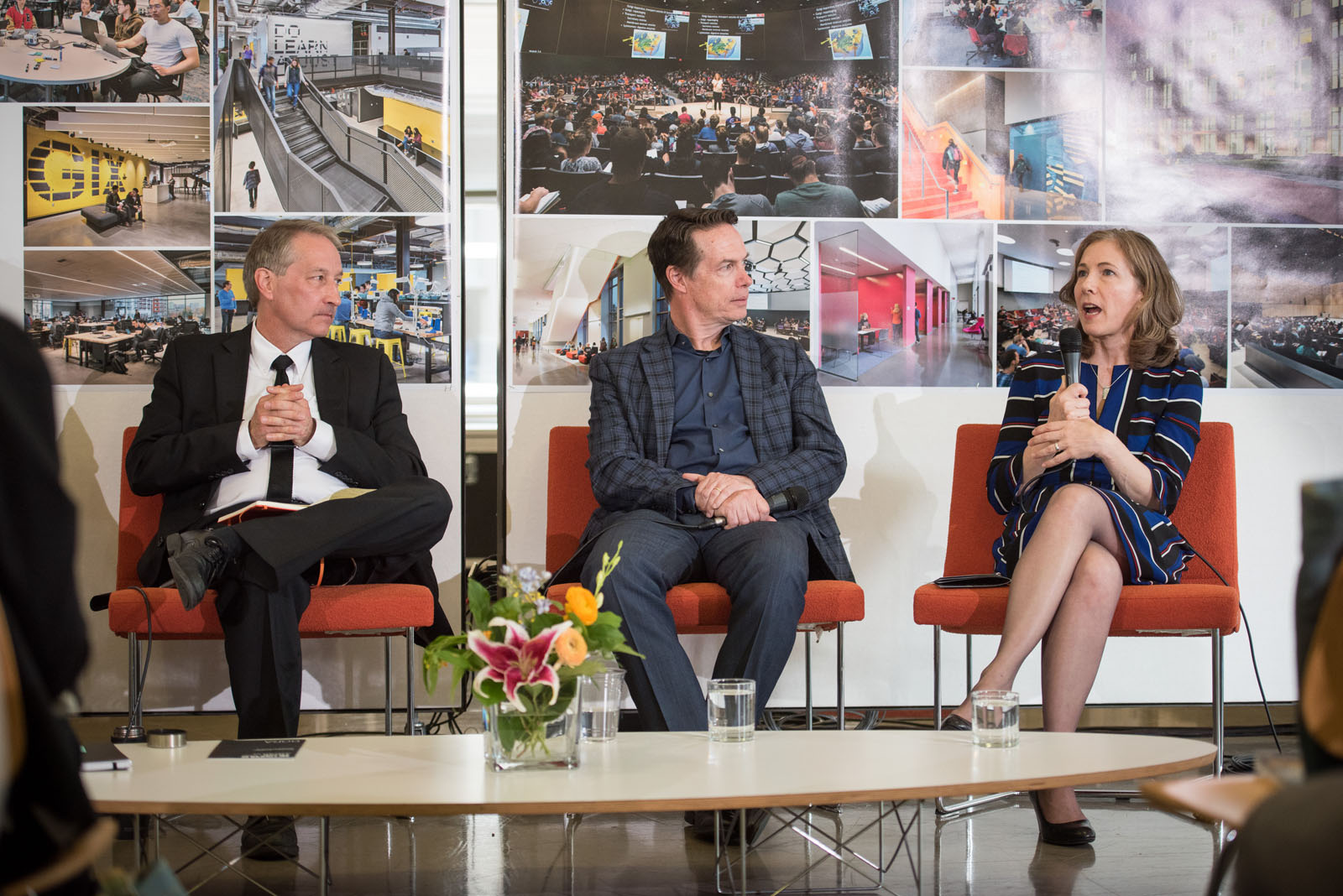
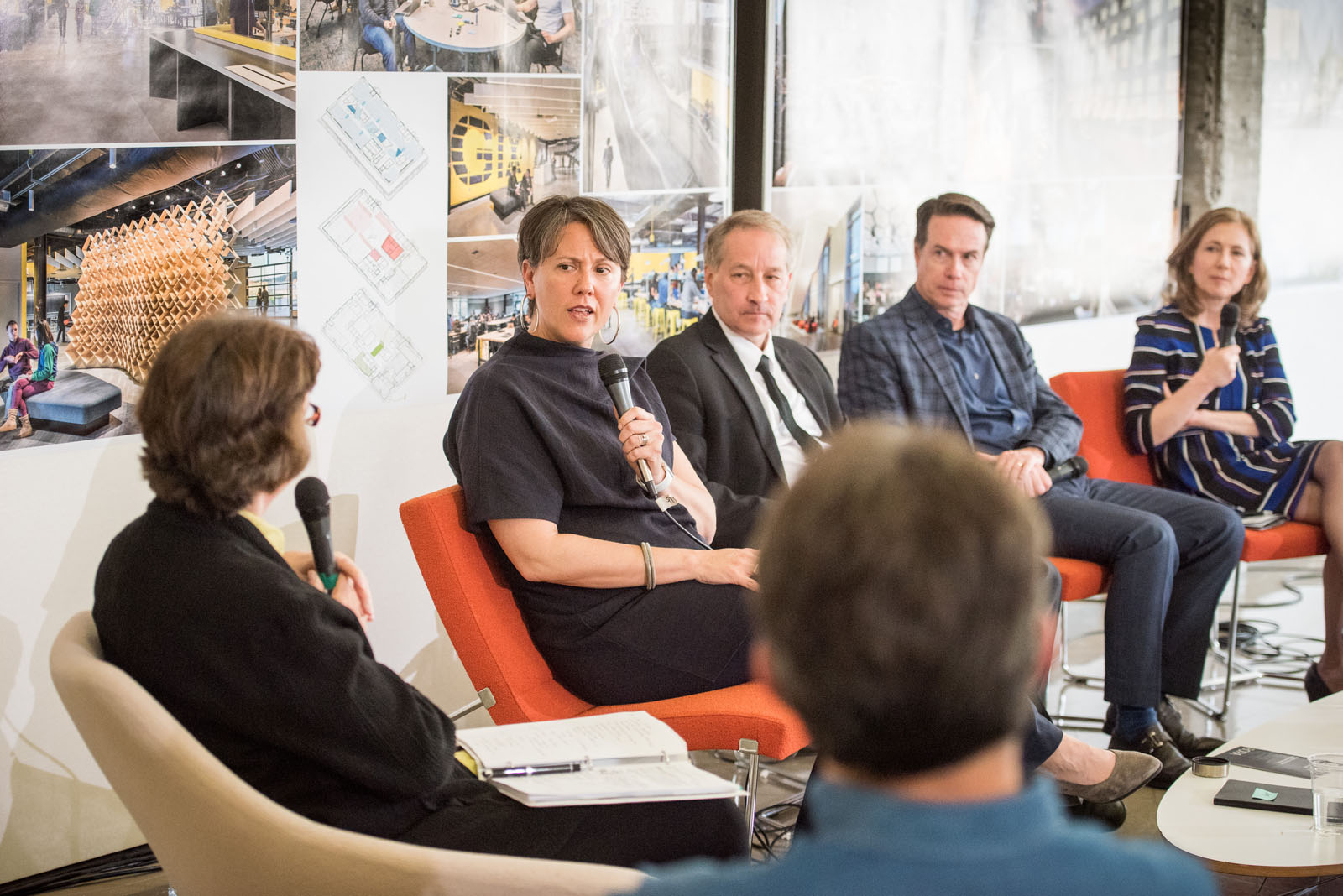
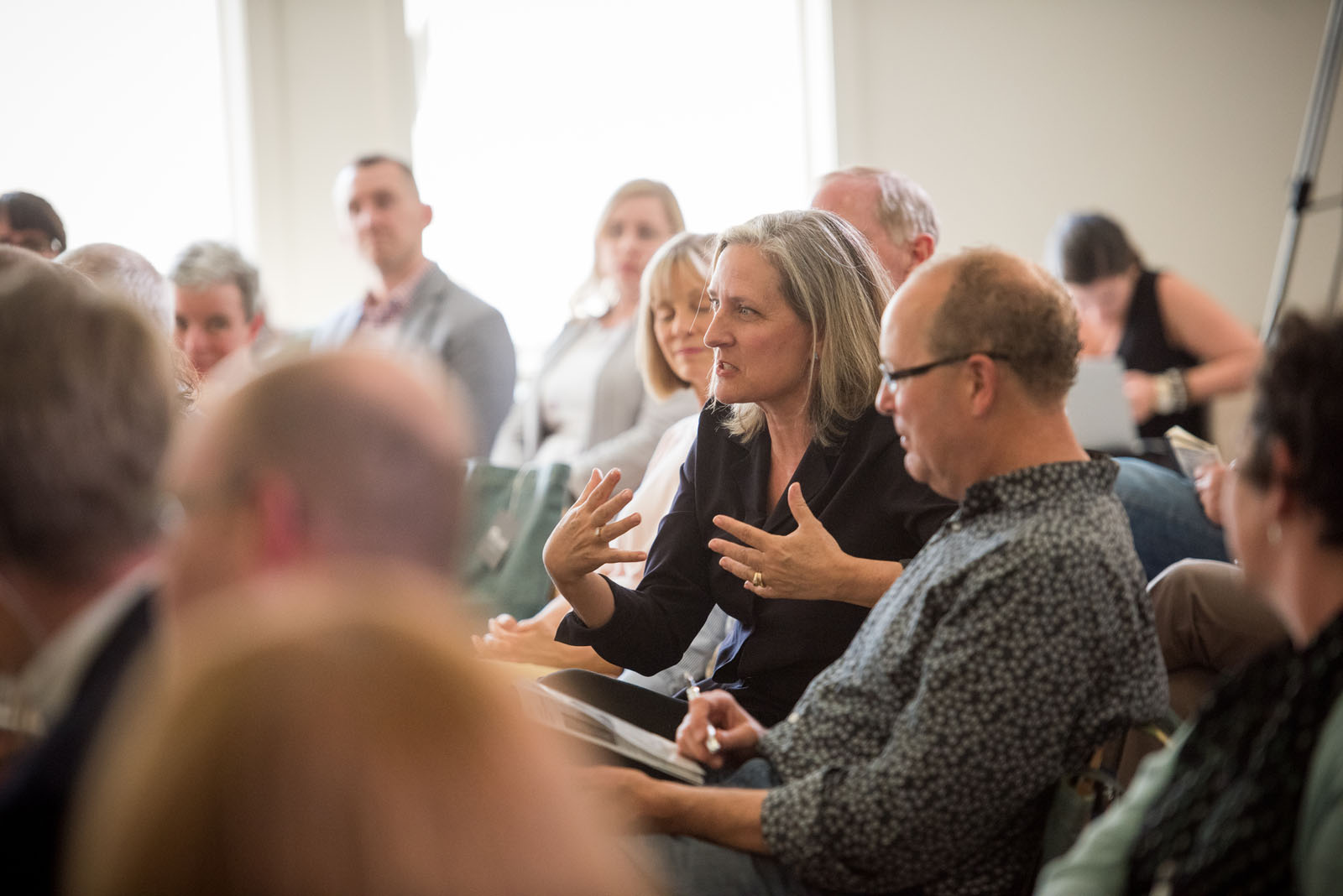
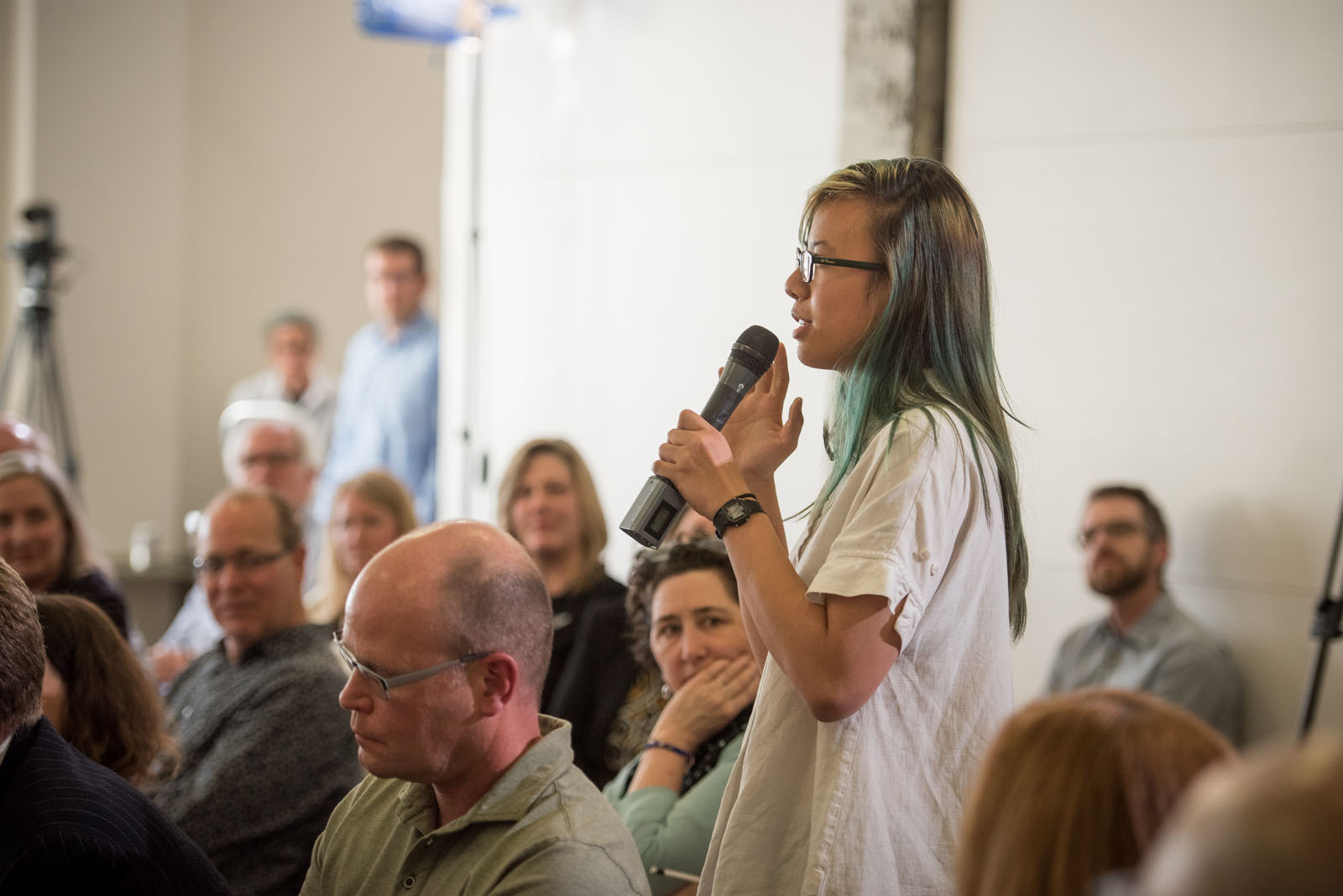
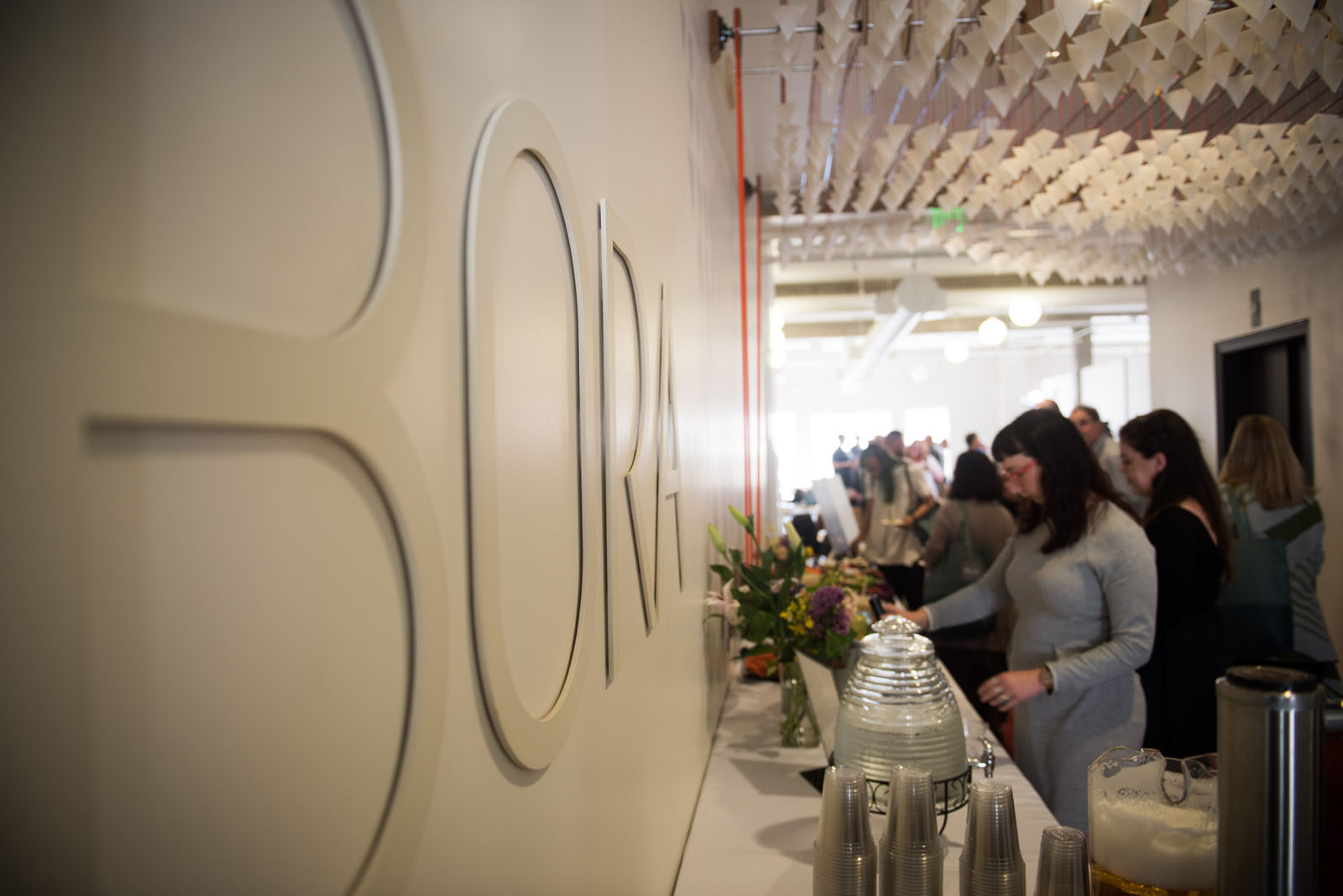
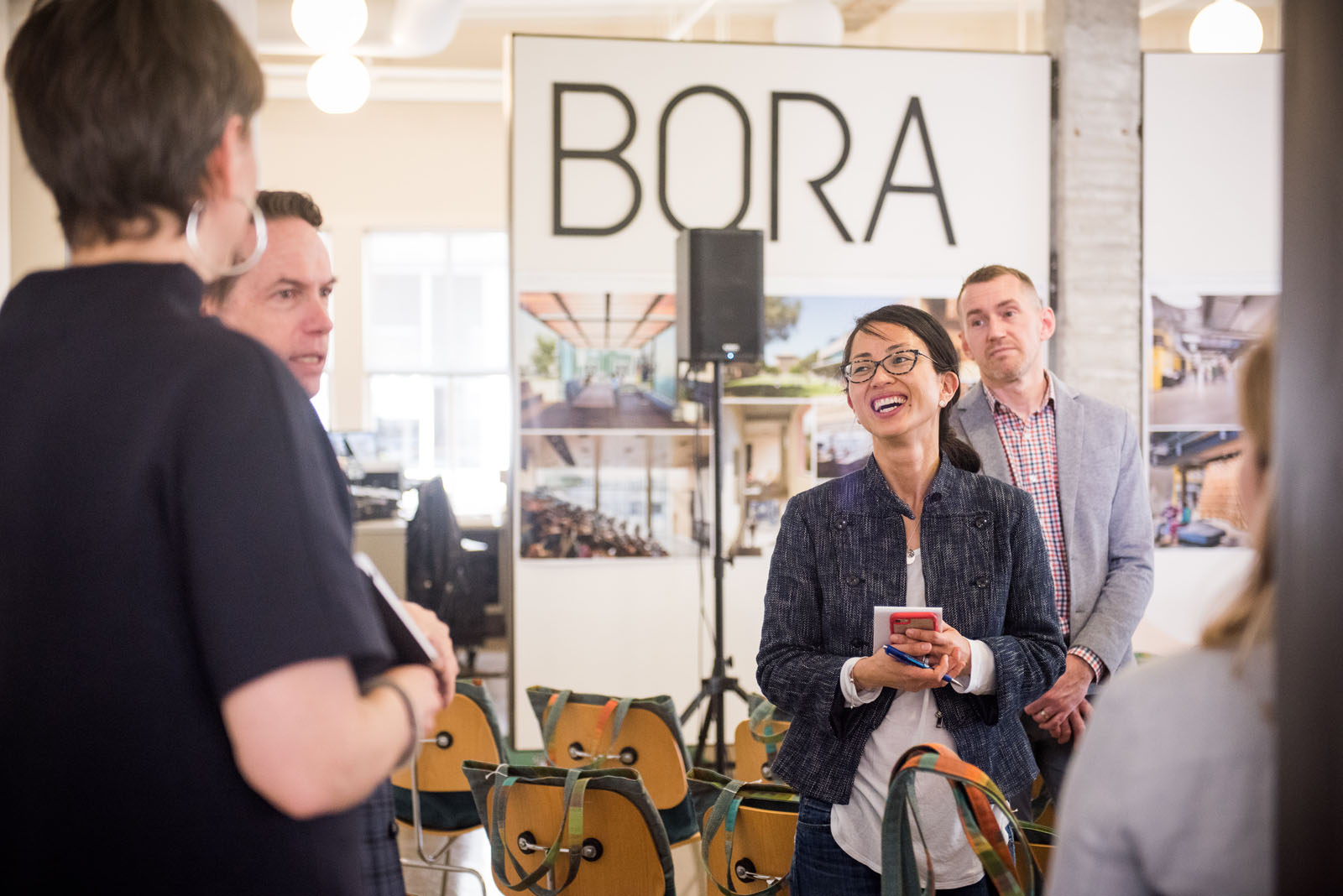
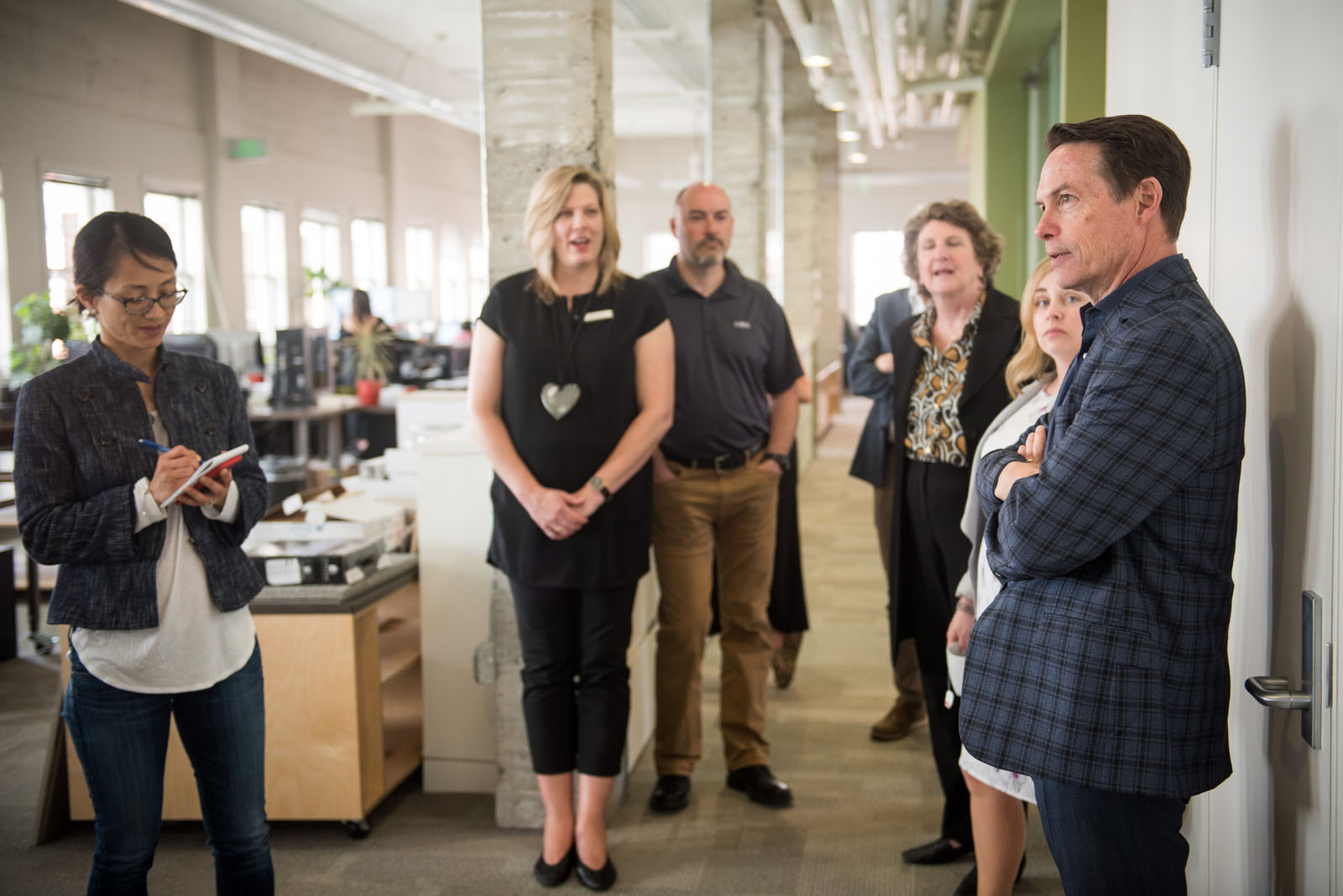
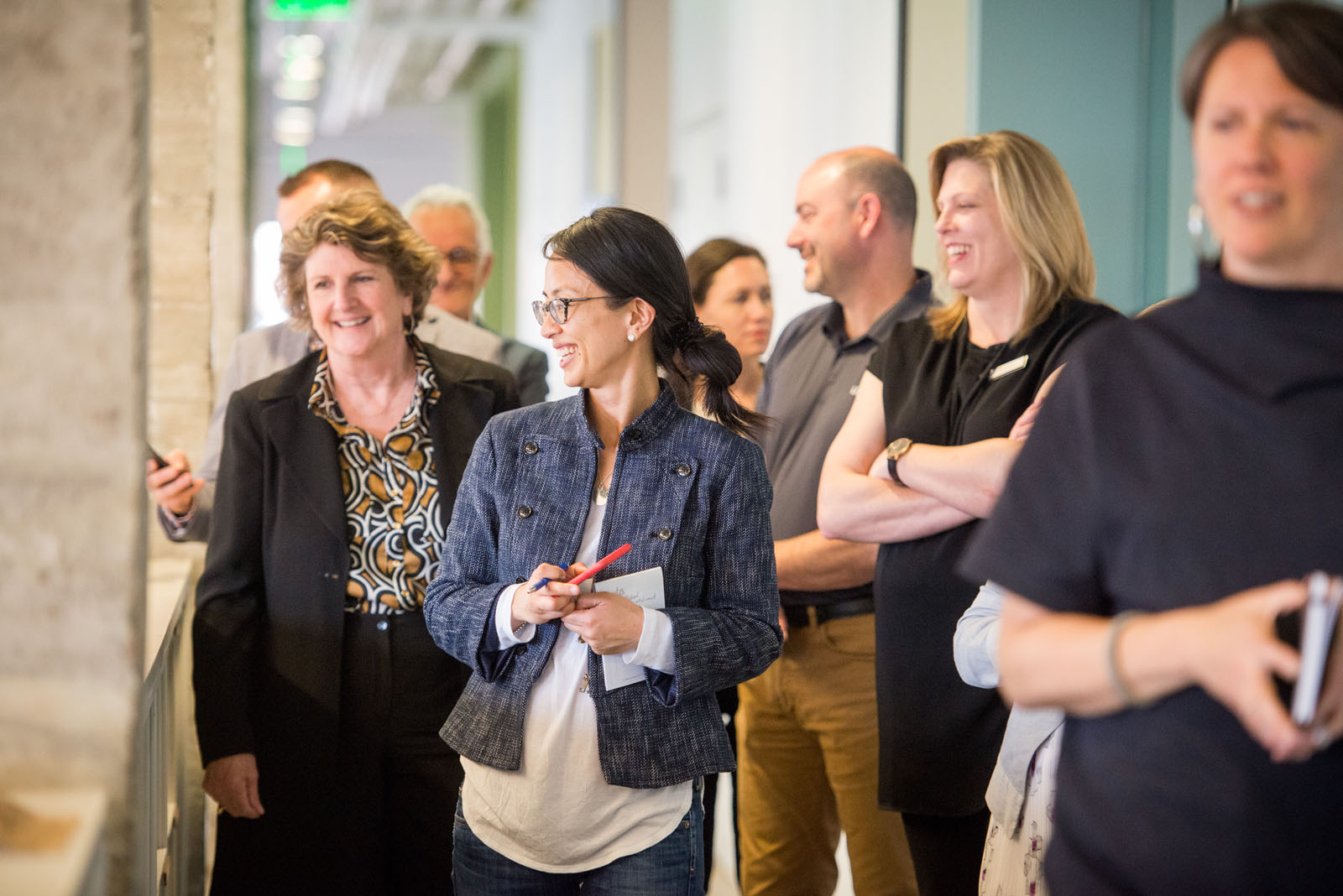
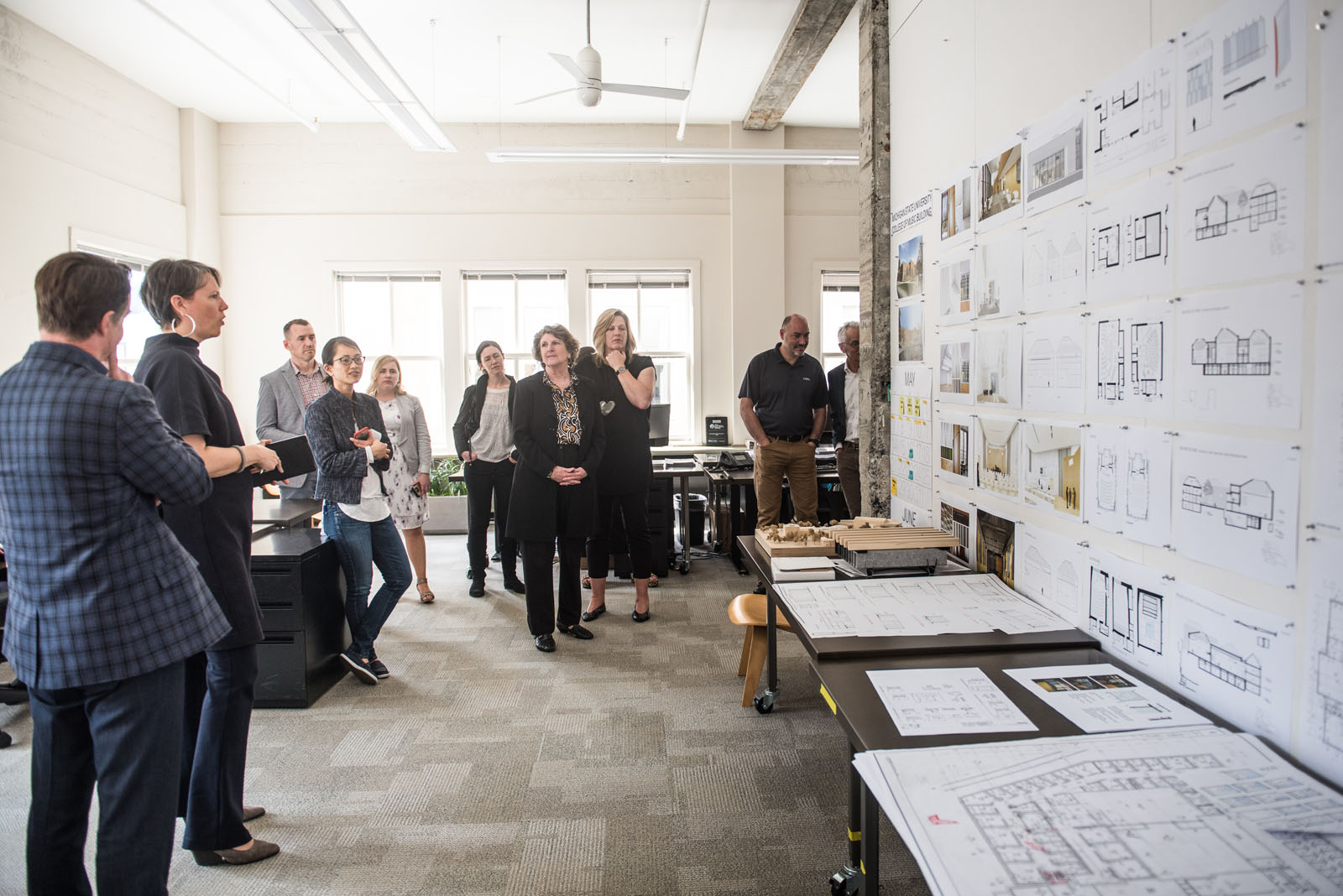
05.16.18
Last Wednesday, Bora’s design lab was filled with architects, students, educators, and our wonderful panel moderated by Metropolis’ director of design innovation, Susan S. Szenasy.
Principals Michael Tingley and Amy Donohue, together with Jon Dorbolo (Oregon State University), and Linda Wagner (University of Washington), took a deep dive into the ways technology, evolving social habits, and global economic systems are impacting academia.
With institutions facing challenges around recruitment and retention, Michael posed the question “Are we going to be teaching 500-seat lectures in 20 years? The classroom will be a different experience. We need to build something flexible, or something that changes the experience within the classroom.”
Following this thread, Jon Dorbolo noted “Universities are the second oldest institutions in the western world…and are the slowest to change. We have to design for student engagement and proximity.” Regarding the research he is conducting at OSU’s Learning Innovation Center, he emphasized that in-the-round lecture halls have dramatically affected attentiveness, faculty-student interaction, and excitement around the learning experience. Instead of rows of students asleep in the back of the room, “with these new designs, students can see each other, reducing withdrawal and no-pass rates.”
Amy Donohue and Linda Wagner spoke on the ways in which the GIX program tackles active learning in a fast-moving, interdisciplinary world, and where industry and higher education are overlapping. “The makerspace is at the core of the curriculum and of the building,” Amy remarked when discussing Bora’s approach. “The design was meant to address three important ideas for makers: Prepare, Practice, and Launch”.
While students at GIX have access to cutting-edge equipment, Linda emphasized the importance of trial and error, low-tech iterations, and a willingness to fail, stating “Your idea as just a statement doesn’t have value. Your development, hard work, and substantiation of that idea is what’s valuable. We have to teach students this, and provide them with experiences to learn it.”
You can watch the full discussion on our Facebook page (starting around the 6 minute mark), and feel free to comment if you have anything you would like to ask or contribute.
Special thanks to our panelists and Metropolis Magazine for an informative and engaging discussion. Thanks also go to Open Signal’s production crew for A/V and live-streaming, and to Alyson Levy for event photography.